- Home
- Madeleine L'engle
The Moon by Night Page 4
The Moon by Night Read online
Page 4
I heard a hiss in Daddy’s direction and whispered, “What’s that?”
“Shh!” he whispered back. “I’m letting a little air out of my mattress.”
“May I?”
“Yes, but don’t let too much out, because you can’t put any back in.”
“Go to sleep, Vicky,” Mother whispered.
“I’m too excited.”
“We’re all excited, but Daddy wants to get an early start tomorrow, so try to relax.”
I turned my mattress valve and let a little air hiss out. Then I stretched out in the sleeping bag sheet. Mother had made sort of inner bags out of old sheets for us. These had tapes on the bottom and could be tied to tapes at the foot of the sleeping bags, so the sheets wouldn’t wrinkle up too much when you tried to turn over. And we all had small foam-rubber-filled cloth pillows, each in a different pattern so we could tell them apart, that could be tossed in washing machines along the way, and of course didn’t take up as much room as regular pillows. There are lots of little things like that to a camping trip that I never thought of when we first started making plans.
Suzy mumbled something in her sleep. From one of the tents or trailers somebody called out, “Harry!” The rain shshed gently through the trees and the sound was a lullaby. I closed my eyes and went to sleep.
The next morning we were up early. On school mornings Mother has to pry us out of our beds, but the moment we heard Mother and Daddy stirring we were all very wide awake and excited immediately. John built the fire and Mother made scrambled eggs and hashed brown potatoes, and brewed coffee in the open pot that came with Uncle Douglas’s cooking set. At home Mother uses an electric percolator; we have friends who make drip coffee and chemex coffee and instant coffee and espresso coffee and I’ve never given a hoot about coffee, I’ve always had milk or cocoa for breakfast. But this coffee! In an open pot you just bring the water to a boil, throw in the coffee (I suppose you have to measure it), and an egg shell if you happen to have one handy, then take the pot off the fire and let it sit on the side of the fireplace till the grounds settle. Well! Nothing has ever smelled quite as wonderful as that open pot coffee at Caledonia State Park, and it even tasted good, with lots of milk and sugar.
We learned that morning that it took us longer to break camp than to set it up. Daddy said we’d undoubtedly learn short cuts and be able to cut down on the time, but we’d have to get going earlier in the morning.
As soon as we got in the car Mother got out her little notebook in which she was keeping lists of everything. Not for any real reason. Just for fun. We did want to know how much we spent each day, and we wanted to jot down every place that was interesting that we went through. The first day we spent $9.95 on tolls, gas, Cokes, and the camping permit. The second day it was $11.84 on tolls, gas, tickets to Monticello (Rob thought it was a musical instrument), gas, sodas, and firewood. At Peaks of Otter State Park in Virginia you had to buy the firewood, but it only cost fifty cents, and the campgrounds were much nicer than Caledonia, with special places marked out for the tents and for parking cars, really nice picnic tables, and well built stone fireplaces with good grills at each campsite. That night we had spaghetti and got to bed earlier than the first night, and were ready for bed, too. There were only a few other campers there, and none very close to us, so Mother got out her guitar and we sang, first loud songs and silly songs, then the kind of sad folk songs, and then she slipped in some hymns. Not that I’m really against hymns, but you know what I mean.
One thing I do like about hymns, most of them we can sing in parts. John and Daddy sing bass, which makes the bass louder than anything else, but you can’t stop them. Suzy and Rob sing the melody, and they both have sweet, clear voices. Rob’s is really terrific for such a little kid. He never flats or gets off tune or anything. Mother sings tenor, sometimes where it belongs and sometimes an octave high, so it’s sort of like a descant, and I struggle along with the alto. I’m the weak link in the part-singing deal. I’m pretty good on the alto of “All Through the Night,” and “Now the Day Is Over” is a cinch. It’s the Bach ones I’m apt to goof on, but they’re really my favorites.
Mother put the guitar down and said, “Let’s end up with ‘I will lift up mine eyes unto the hills.’ After the glorious hills we’ve seen today it seems the perfect way to say good-night.”
As far as the Bible goes (and I suppose you might say it goes pretty far, even if not with me at this point) I like the psalms best, and that’s one of my particular best ones, so that was okay.
We cut five minutes off breaking-camp time the next morning and headed for Tennessee.
Don’t let anybody kid you. Tennessee’s quite a state. When I look back on that night at Cosby Camp Site in the Great Smokies National Park I still get gooseflesh.
Four
But the day started peacefully enough. We drove through more beautiful mountains and more beautiful mountains, till I stopped looking. In the afternoon it began to cloud up, and the weather reports started mentioning possible showers. But this was becoming routine for afternoons and didn’t bother us any more. We stopped at a market and bought food for dinner: pork chops, turnip greens, lettuce. We still had potatoes and tomatoes and milk, and we’d replenished our ice the day before with a twenty-five pound chunk which would last forty-eight hours.
As we got near the Great Smokies National Park we passed an inn called the Black Bear Inn. It had a sign with a big picture of a bear on it, and Rob cried out, “A bear! A bear!”
“Where?” Suzy yelled, reaching for her notebook, because she was keeping lists, too, only her lists were of animals and insects and (she hoped and I didn’t) snakes.
Daddy pointed to the sign and said, “Take a good look, kids. That’s probably as close to a bear as you’ll get till we reach the Rockies.”
As we drove into the park the wind began to whip at the trees, and dark clouds scudded across the sky. It wasn’t actually raining, but the air felt wet. There were puddles at the sides of the road, so we knew it must have showered here earlier.
“We’d better set up camp and get dinner quickly,” Mother said.
We had our choice of campsites. At Caledonia it was almost crowded; and at Peaks of Otter, in Virginia, there’d been other families. Here we were the only people in the largest campgrounds we’d been to so far. I suppose the reason there wasn’t anybody else there was that we’d started out almost a month ahead of usual camping time. School was still open most places and people wouldn’t be going on vacations yet.
It was a beautiful campgrounds, with big stone tables and benches, and really good fireplaces for each campsite. But it was lonely, and for some reason I felt edgy and almost scared. I didn’t quite know why, and I certainly didn’t say anything about it. But I wished the ranger’s house were nearer the campgrounds instead of way down the mountain.
The ground was soft and wet; it must have rained hard here. But this at least made the tent pegs lots easier to drive into the ground, so John and Daddy got the tent up quickly. The late afternoon was chill, so we built an extra big fire. We put on our sweaters and stayed close by the tent instead of running off to explore the way we usually did. The sky was full of low, black clouds, making it dark for this time of day. The wind was rising, whipping the trees so that the younger ones bent against its lash and the small branches tossed wildly.
As soon as dinner was ready we sat down at the big stone table. Because we were the only people there we sang grace, one we do to the Tallis Canon, a very joyful noise. Despite my current feelings about loud singings of grace it made me feel better. Also there’s something very matter-of-fact about pork chops. Heroines of mystery novels are never mentioned eating a dinner of pork chops just before something terrible is about to happen.
Being a little nervy hadn’t blunted my appetite, and I was gnawing on my chop bone when we heard a car coming up the hill to the campgrounds very fast. It whizzed by us—it must have been going seventy-five miles an hour on that na
rrow, winding road—zoomed all the way around the campgrounds, and went by us again. As it passed something was flung out of the window and shattered against the side of our station wagon with a sound like an explosion. We all stood up. I thought it was a bomb.
Daddy started towards our car. He moved with such quickness and decision that he was half way there before the rest of us had untangled ourselves from the picnic table and started to follow him. I still had my pork chop bone in my hand and was trembling like an aspen.
“It was just a Coke bottle,” Daddy said, his voice very quiet and matter-of-fact. But it wasn’t his regular, at home voice. It was his Dr. Austin voice, the kind of voice he uses when patients get hysterical, or some kind of emergency comes up that has to be handled quickly and without fuss.
We could still hear the car zooming on around the road that circled the campgrounds. I knew it was coming by us again, and no matter how calm Daddy was, I was very frightened. There was a dent in the fender where the Coke bottle had hit it, dark stains of Coke splashes, and broken glass all over.
Daddy said, sharply, “Everybody get back to the picnic table. Quickly. Sit there and eat as though nothing had happened.”
I knew the car would come by again, and they might throw something else. This time it might hit one of us instead of the station wagon. We scurried up the side of the hill to the picnic table. Mother put her arm around Rob and pretended to eat salad. John said, “Those dumb hoods,” and drank some milk.
“How do you know it was hoods?” I asked.
John sounded disgusted. “Who else?”
Now we could hear the car coming closer, and I could feel everything about my body tightening up.
Daddy said, “Just ignore them.”
This time the car didn’t whizz on by and they didn’t throw anything. The car stopped with a great squealing skid and jamming on of brakes. It was a shabby-looking jalopy, and inside it was a gang of boys. John was right, as usual, but that didn’t make me any happier. The left front door opened and the boy behind the steering wheel got out. He had on black tapered pants and a black leather jacket.
Daddy got up from the picnic table, speaking in low command. “Stay where you are. You, too, John.”
I looked at Mother, sitting very still, her arm around Rob. I knew she was frightened because she was as motionless as a statue. I looked at Daddy walking unhurriedly down towards the boy.
Before Daddy said anything the boy snarled, and he sounded more like an animal than a human boy, “Ah believe you have one of our Cokes. We’d like it back.”
Daddy is used to giving orders and he is used to being obeyed. He spoke very quietly, but his words were as cold and sharp as ice. “Get in your car and get out of this campgrounds. At once. If we have any further trouble from you I shall report you to the police.”
“Yea-uh?” the boy said. “Un-hunh?” His voice had a southern drawl, but it wasn’t soft and it wasn’t pretty. “Just you try, mistah. We’ll go when we feel like it.”
“You will go now,” Daddy said, still very quiet.
“Yea-uh? Now just tell me why?”
Daddy spoke as though he were talking to Suzy and Rob when they were being disobedient. “Because I say so.”
The boy moved slowly, insolently towards Daddy. I remembered a TV show about delinquents where a boy had deliberately tweaked a man’s nose in order to humiliate him, and the man stood there and took it. I didn’t think Daddy would. I held my breath. Before the boy could do anything Daddy reached out casually and gave a flip and the boy was over his back and lying sprawled on the soft, wet leaves.
I let my breath out.
Daddy was a black belt in Judo before any of us was ever born. We’ve always been proud of it, but as far as I know he’s never had to use it before.
The boy got up and as soon as he was on his feet Daddy flipped him again. Then he picked him up by the scruff of his neck. “Get back in your car and go home.”
The boy stood there in front of Daddy. The back door of the car opened, but nobody got out. Beside me on the picnic bench John stood up and started to walk down to Daddy.
Daddy looked levelly at the boy. “Get back in your car. This is a state campgrounds and you are certainly a very poor representative of your state. Go home. And don’t come back here again.”
The boy looked at Daddy. Daddy looked back, stern and commanding. The boy dropped his gaze and turned, saying, “Aw, c’mon, let’s get out of here.” He got back in the car and started it so quickly that the wheels spun. They went careening down the road, taking the curve on two wheels.
Daddy and John came back to the picnic table. Suzy said in a shaky voice, “I don’t think I like Tennessee.” My hands were drenched in cold sweat, and I could see that Mother’s hand, as she reached for her tin mug, was trembling.
John’s voice was gratey, so I knew that he’d been scared, too. “Don’t be a nut. It’s just hoods anywhere. They’re all the same. Tennessee, New York, the U.S.S.R.”
“Not in Thornhill,” Suzy protested.
“There’re a couple in Thornhill, and a gang of them over at Regional. Vicky knows that.”
Yes, he was right. I thought about some of the boys at home who had been grinning, freckle-faced kids just a couple of years ago and who were now hanging around the drugstore and smoking and thinking they were so darned big. I couldn’t even talk to them any more. It was as though we spoke different languages. What was changing them? To what?
Suzy asked, “Daddy, weren’t you scared?”
“I didn’t like it,” Daddy said, “but most hoodlums are cowards when it comes to a showdown. They’re only brave when they think you’re afraid of them. Now don’t let this spoil our trip, and don’t let it spoil Tennessee. John’s quite right.”
“Are we to be frightened by our teen-agers?” Mother asked bitterly. “Has it come to that?”
“Vicky and I are teen-agers,” John said. “You can’t blame teen-agers any more than you can Tennessee. There are dopey fringe elements in every group. I wrote a paper on it for Social Studies once.”
Daddy finished his milk. “Okay, son, you stay here and take care of everybody. I’m going down to talk to the ranger.”
“About those JDs?” Suzy asked.
“I doubt if they’re really JDs,” Daddy said, “but it’s certainly a very poor idea to allow them in a state campgrounds. Come along with me, Rob. Girls, you help Mother with the dishes.”
After we’d washed and dried the dishes and emptied out the rinse water Suzy remembered, “Hey, we haven’t had dessert!” So Mother said just to roast some marshmallows. The fire had died down now and there was a lovely bed of glowing coals, just right for marshmallows. John likes to burn his, and Suzy likes hers raw, but what I like is to toast mine a lovely, puffy, golden brown, then eat off the toasted skin, hold it back over the embers and watch it puff up again, almost to full size, eat off the skin, toast it again, and go on until I’m almost down to nothing. Mother likes hers that way, too, and we had a contest to see who could make the marshmallows last for the most layers.
We were all very jumpy. Mother knew this, and maybe she was jumpy, too, I don’t know. That’s one trouble about parents; they always try to hide it from you when they’re worried about something, and lots of times you’d feel a lot better if they’d just come out and tell you what was on their minds. I think Mother sometimes does tell John things. I suppose I’m too young. Too young to be told things properly like a grown-up, and too old to go clamoring to Mother for comfort. This is something Uncle Douglas understands. He talks to me as though I were twenty at least, but when he sees I’m upset he’s apt to pick the biggest chair available and then pull me down into it with him, so that I feel protected and can have the pleasure of being treated like a baby with none of the problems.
“I don’t like Tennessee,” Suzy said again, looking at a marshmallow and deciding whether or not to toast it. “Where’ll we be tomorrow night?”
“Tenne
ssee again,” Mother said. “It’s a bigger state than I’d realized, and we’re going diagonally across it, from the north-east corner to the southwest.”
“Ugh.”
Mother rumpled Suzy’s curls. “Don’t blame Tennessee for an unpleasant incident, Suzy. Daddy took care of it and nothing happened.”
“But it might have,” Suzy said. “I wish we had Rochester with us.”
I went along with Suzy. Having Rochester around would have made me feel lots happier. “Mother, what would have happened if Daddy didn’t know Judo?”
Mother laughed. “Judo was just a spectacular way of handling the situation. I think Daddy could have managed without.”
Suzy made a face. “If we have to be in Tennessee again tomorrow I’m just as glad he knows it.”
Mother held her marshmallow carefully over the embers. “Tennessee’s a lot prettier a state so far than I’d expected. I love the rolling hills and winding roads. And the amazing and utterly unusable speed limit of sixty-five.”
John laughed, “It made me feel kind of a square to be driving about fifteen miles under the speed limit all the time.”

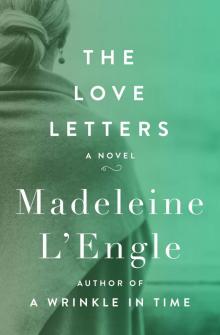 Love Letters
Love Letters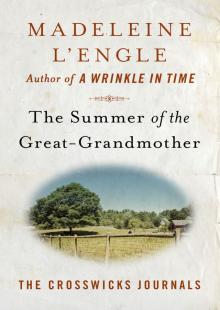 The Summer of the Great-Grandmother
The Summer of the Great-Grandmother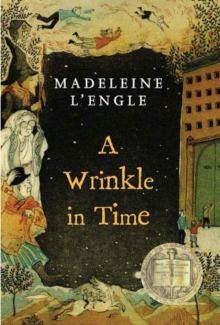 A Wrinkle in Time
A Wrinkle in Time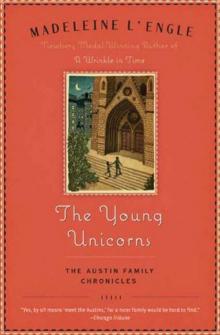 The Young Unicorns
The Young Unicorns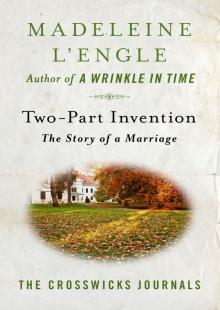 Two-Part Invention: The Story of a Marriage
Two-Part Invention: The Story of a Marriage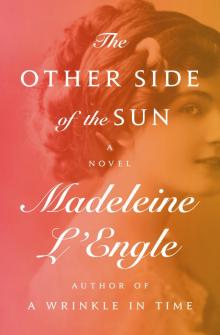 The Other Side of the Sun
The Other Side of the Sun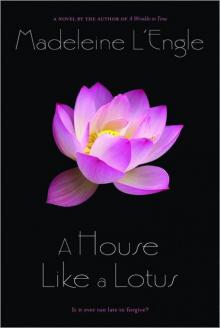 A House Like a Lotus
A House Like a Lotus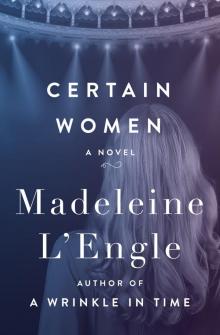 Certain Women
Certain Women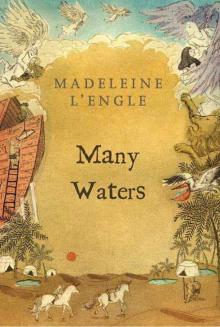 Many Waters
Many Waters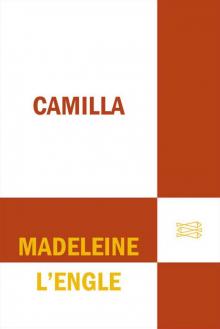 Camilla
Camilla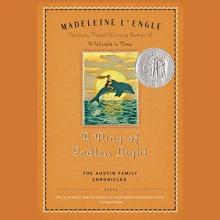 A Ring of Endless Light
A Ring of Endless Light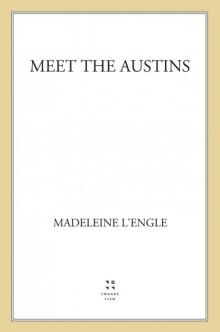 Meet the Austins
Meet the Austins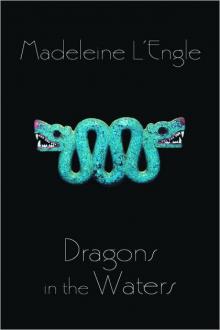 Dragons in the Waters
Dragons in the Waters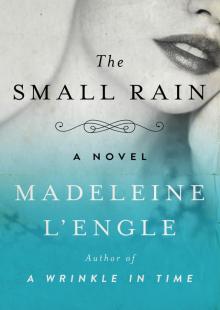 The Small Rain
The Small Rain The Moment of Tenderness
The Moment of Tenderness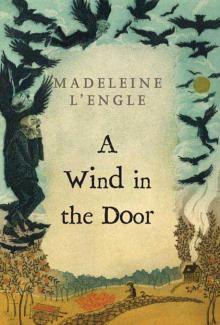 A Wind in the Door
A Wind in the Door Miracle on 10th Street
Miracle on 10th Street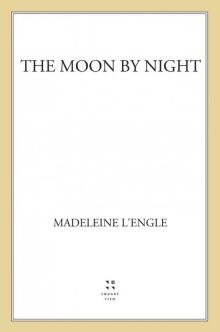 The Moon by Night
The Moon by Night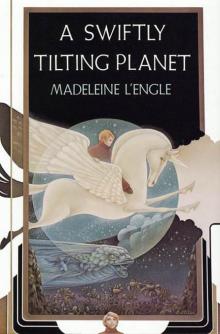 A Swiftly Tilting Planet
A Swiftly Tilting Planet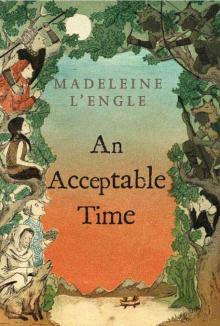 An Acceptable Time
An Acceptable Time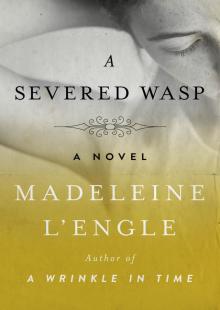 A Severed Wasp
A Severed Wasp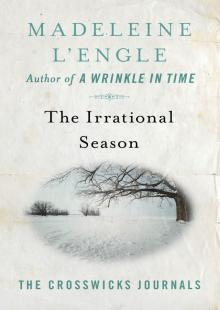 The Irrational Season
The Irrational Season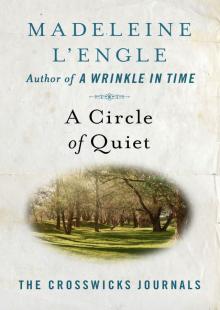 A Circle of Quiet
A Circle of Quiet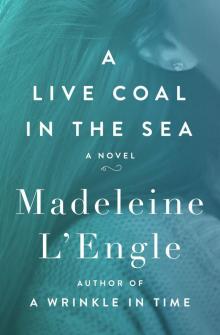 A Live Coal in the Sea
A Live Coal in the Sea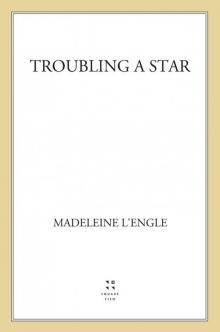 Troubling a Star
Troubling a Star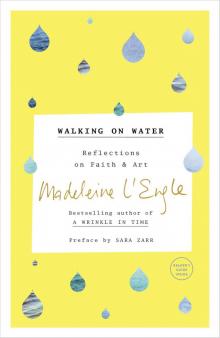 Walking on Water: Reflections on Faith and Art
Walking on Water: Reflections on Faith and Art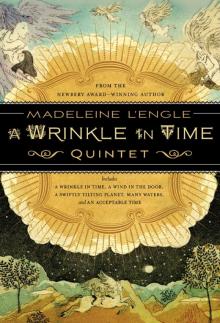 A Wrinkle in Time Quintet
A Wrinkle in Time Quintet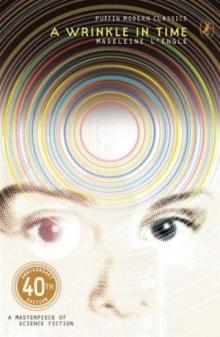 Wrinkle in Time
Wrinkle in Time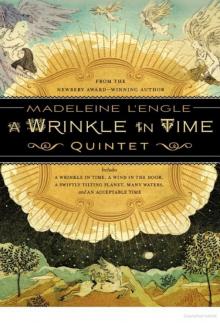 The Wrinkle in Time Quintet
The Wrinkle in Time Quintet Intergalactic P.S. 3
Intergalactic P.S. 3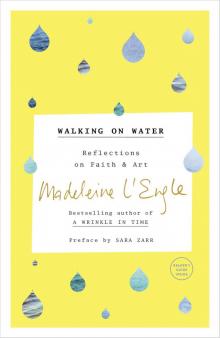 Walking on Water
Walking on Water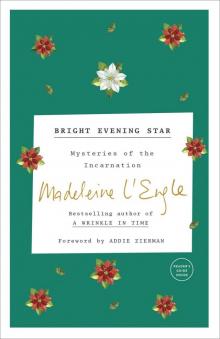 Bright Evening Star
Bright Evening Star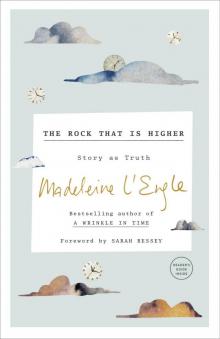 The Rock That Is Higher
The Rock That Is Higher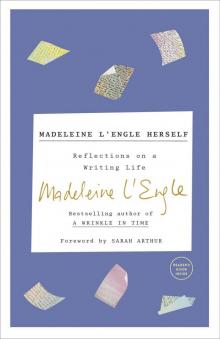 Madeleine L'Engle Herself
Madeleine L'Engle Herself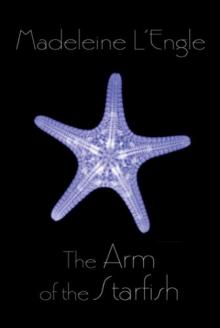 The Arm of the Starfish
The Arm of the Starfish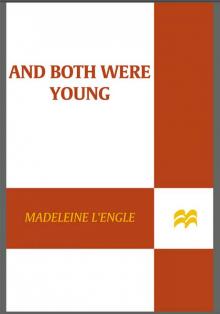 And Both Were Young
And Both Were Young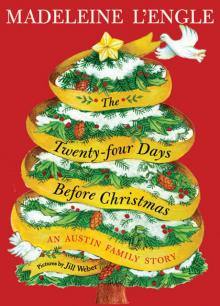 The Twenty-four Days Before Christmas
The Twenty-four Days Before Christmas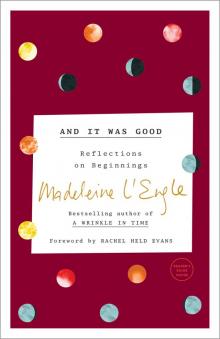 And It Was Good
And It Was Good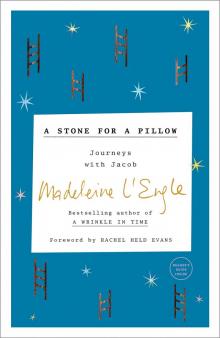 A Stone for a Pillow
A Stone for a Pillow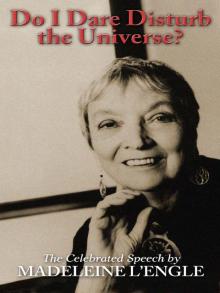 Do I Dare Disturb the Universe?
Do I Dare Disturb the Universe?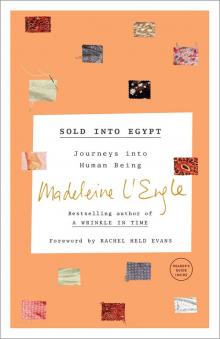 Sold into Egypt
Sold into Egypt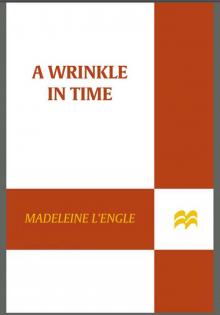 A Wrinkle in Time (Madeleine L'Engle's Time Quintet)
A Wrinkle in Time (Madeleine L'Engle's Time Quintet)